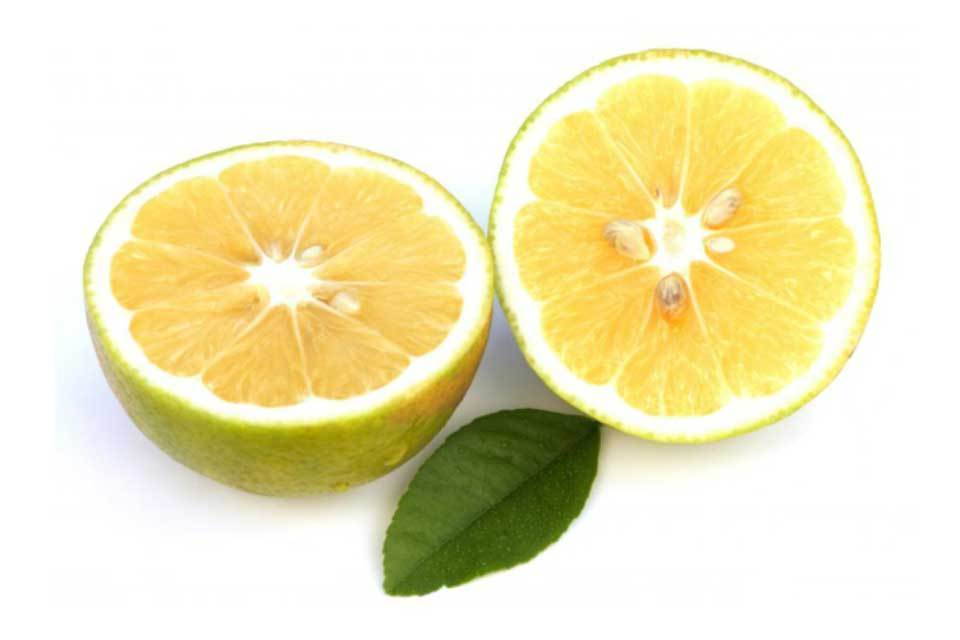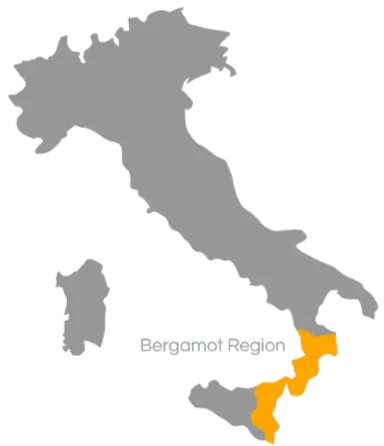Your Cart is Empty
Bergamot, or Citrus bergamia, is a rare citrus fruit native to the Calabrian region of Southern Italy which accounts for 80 percent of the worldwide production of bergamot. This superfruit has been used for decades in the Calabrian regions for its beneficial effects in promoting overall health due to the unique weather and soil conditions of that region. Citrus bergamot has been shown in multiple clinical studies to contain unique polyphenols, which support, regulate and maintain optimal healthy cholesterol levels, HDL-LDL ratios, and which support cardiovascular and metabolic health.
What makes bergamot unique among citrus fruits?
Citrus bergamot includes five unique antioxidant polyphenols in unusually concentrated amounts, which help protect your body’s trillions of cells from free radical damage.
The juice and albedo of bergamot has a unique profile of flavonoids and glycosides, such as neoeriocitrin, neohesperidin, naringin, rutin, neodesmin, rhoifolin, and poncirin, which contribute to the health maintenance effect of bergamot.


BergaMet is the only company whose bergamot extract is approved by the prestigious Accademia del Bergamotto in Calabria, Italy.
The Calabrian region of Italy yields the most potent citrus bergamot fruit in the world, which enables BergaMet to produce a BPF (bergamot polyphenolic fraction) of 47 percent or greater - the most concentrated extract available anywhere.
Competing citrus bergamot products contain only 38 percent BPF or less (BergaMet products include a minimum of 40 percent and up to 47 percent BPF).
Bergamot is naturally sourced, organic, and grown with no pesticides whatsoever.
BergaMet is the only bergamot product formulated based on the most up-to-date research by highly regarded medical professionals who oversee thousands of patients currently taking bergamot supplements.
THE HISTORY OF BERGAMOT
A Rare Gem
Bergamot has long been considered a gift both precious and mysterious. The fruit grows exclusively along the coast of Italy, from Villa San Giovanni to Brancaleone, in an area known as Reggio Calabria. Bergamot (Citrus bergamia) is spherical in shape and turns vibrant yellow when is fully ripe. The fruit, according to historians, is a cross between orange and lemon (though some say it’s cedar instead) with bitter orange.
Discovering Bergamot
The first recorded traces of Citrus bergamia appeared around 1750, when a man named Nicola Parisi cultivated the first-known extensive planting of bergamot trees near the Calabrian region in Southern Italy. This area has a tropical humid temperate climate (meaning hot humid summers and mild winters) that happens to be perfect for growing not just any citrus bergamot, but the best in the world. Even other regions with similar climates, like Argentina, Brazil, and the Ivory Coast, can’t match the quality of our Southern Italian fruit.
Bergamot Today
